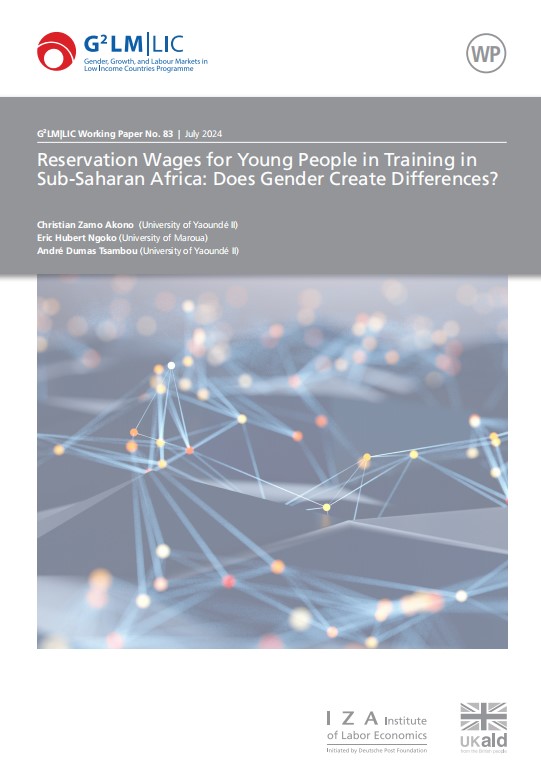Based on data on the transition of young people to the labor markets of French-speaking Sub-Saharan Africa, carried out by the Centre d’Etudes et de Recherche en Economie et Gestion with the financial and technical support of the International Development Research Centre (IDRC) in 2021 on 4710 young people, this paper analyzes the reservation wage inequality between girls and boys still in the education system in Cameroon and Chad. The methods used are Ordinary Least Squares on the whole population and on girls and boys separately, the Oaxaca-Blinder decomposition technique and conditional and unconditional quantile decompositions. The estimates show that gender is significantly correlated with reservation wages for girls and boys. The Blinder-Oaxaca decomposition shows that around 30% of these differences are attributable to explained characteristics, against 70% attributable to unexplained characteristics. The decomposition by conditional and unconditional quantiles without taking covariates into account shows that this gap is variable at each considered decile and quartile of the reservation wages distribution. Furthermore, conditional decompositions with covariates taken into account show that gender differences in field of study and level of education are important in explaining the gender gap in young people’s wage claims.

Reservation Wages for Young People in Training in Sub-Saharan Africa: Does Gender Create Differences?
- Christian Zamo Akono
- Eric Hubert Ngoko
- André Dumas Tsambou